Peers adjournpublished at 22:04 GMT 20 December 2016
 House of Lords
House of Lords
Parliament
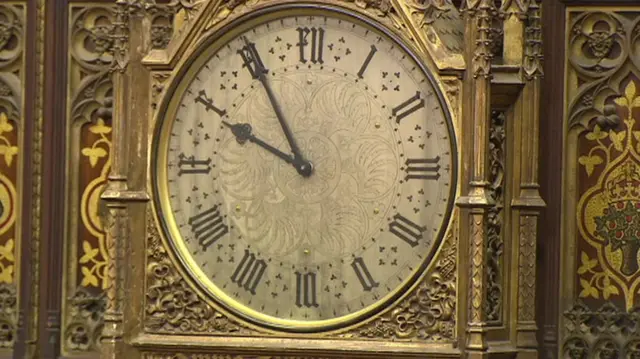
There the debate concludes and the House of Lords is adjourned.
Peers return tomorrow at 11am for one last day before Christmas.
Foreign Affairs Committee investigate UK-Russia relations
Health questions kick off the day in the Commons
Main business is debate on leasehold and commonhold reform; and then general debate
Theresa May to appear before Liaison Committee at 2pm
Peers meet at 2.30pm for oral questions
Business includes orders and regulations, and Marriage and Civil Partnership (Minimum Age) Bill
Ros Ball, Patrick Cowling and Kate Whannel
 House of Lords
House of Lords
Parliament

There the debate concludes and the House of Lords is adjourned.
Peers return tomorrow at 11am for one last day before Christmas.
Press regulation debate
 House of Lords
House of Lords
Parliament
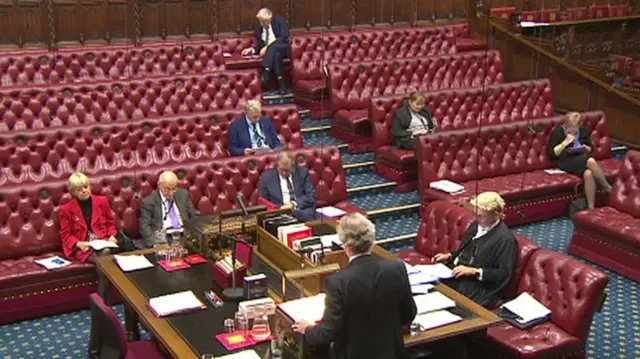
Advocate General Lord Keen of Elie warns peers that neither democracy or press freedom can be "taken for granted".
"When we speak of truth" he says "We have to ask whose truth".
He says that the government is determined to achieve a balance between press freedom and the freedom of the individual.
Press regulation debate
 House of Lords
House of Lords
Parliament
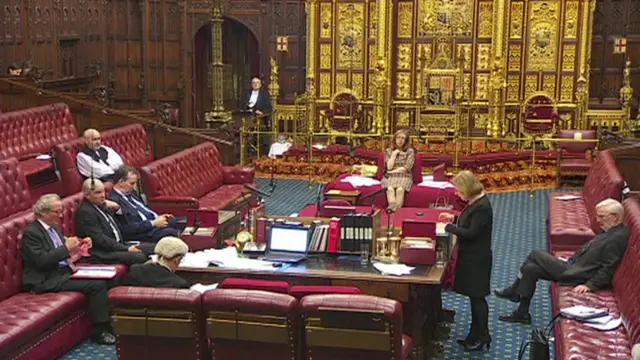
Opposition spokesperson Baroness Jones argues that it is hard to believe that the press have "cleaned up their act".
She accuses the press of making false allegations, breaching victim confidentially, printing false stories without redress and fueling xenophobia.
She urges the government to "understand the continuing clamour for reform" and implement the second stage of the Leveson inquiry.
A "Leveson two" hearing into ties between newspapers and the police was originally put on hold amid criminal inquiries over phone hacking.
Press regulation debate
 House of Lords
House of Lords
Parliament
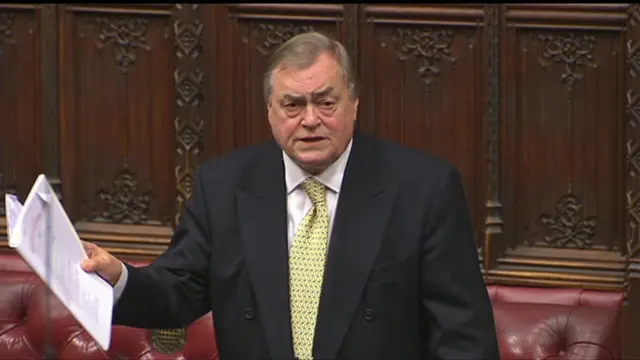
Labour's Lord Prescott notes that the title of the committee report is "Where are we now?"
"Still confused" he suggests.
"Why is it", he asks, "that recommendations to make the press accountable have been opposed".
He argues that it is because a powerful press puts pressure on the government and the government bows to that pressure.
Press regulation debate
 House of Lords
House of Lords
Parliament
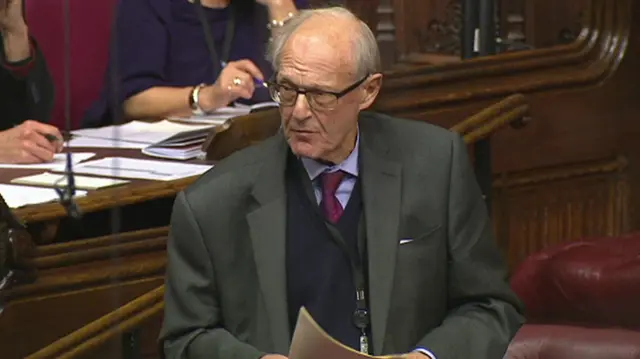
Crossbencher Lord Brown of Eaton believes "we are in a reasonably good place" on press regulation.
He argues that the courts have shown themselves capable of dealing with hacking and the right to privacy has become entrenched.
The situation, he believes, would be "worsened" rather than improved by implementing section 40.
"Are we intent on punishing newspapers who, on a point of principle, are not prepared to be regulated by Impress" he asks. "Do we want war" he adds.
"Let things be, let well alone" he concludes.
Press regulation debate
 House of Lords
House of Lords
Parliament
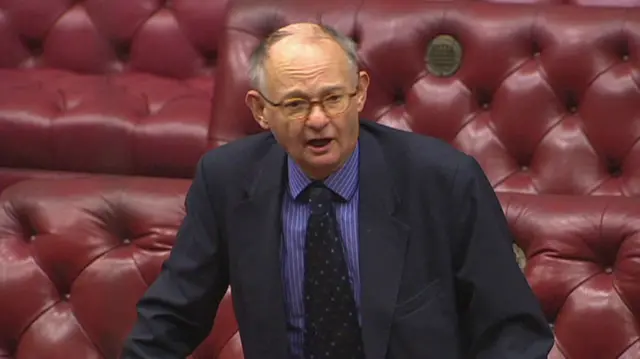
Labour's Lord Lipsey expresses amazement at how little has happened in the field of press regulation.
He also laments how little the press has changed noting the "persecution" of Prince Harry and his girlfriend.
He expresses the hope that in the new year the Culture Secretary Karen Bradley will announce the implementation of section 40. "On the same today perhaps we will see pigs fly" he adds.
Implementing section 40 would mean any newspaper that refused to sign up to the new regulator could have to pay the legal fees of a complainant who sued them for libel, even if the paper won the case.
Press regulation debate
 House of Lords
House of Lords
Parliament
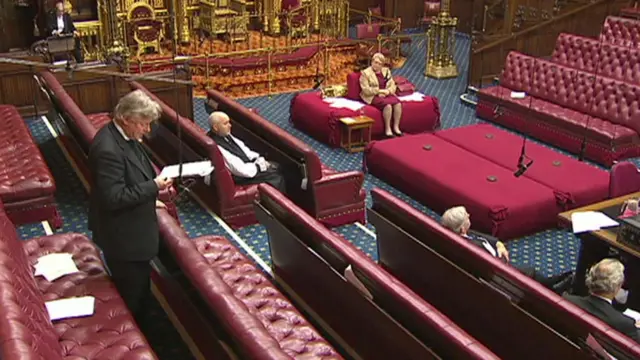
Conservative Lord Inglewood proposes a system whereby the zero rating on VAT for newspapers should be restricted to those whose complaints procedures meet certain statutory requirements.
These requirements would not be identical but would derive from Lord Leveson's recommendations he says.
Press regulation debate
 House of Lords
House of Lords
Parliament
Crossbencher Lord Best describes the current situation as "far from satisfactory".
He asks the government if the current situation whereby the majority of press refuse to submit to the Royal Charter can continue indefinitely.
He says the committee's report does not provide "a silver bullet" but seeks to "shed light" on how things now stand.
 House of Lords
House of Lords
Parliament
 Image source, Getty Images
Image source, Getty ImagesWe now come to the final item of the day - a debate on the Communications Committee report on Press regulation entitled – “Where are we now?”.
In 2013 party leaders agreed to set up a new watchdog using a Royal Charter to approve press regulators as recommended by the Leveson Report.
A small number of minor publications have signed up to Impress, the only regulator approved by the Royal Charter.
The newspaper industry has set up their own regulator, the Independent Press Standards Organisation which regulates all major national newspapers except for the Financial Times and The Guardian.
Report from the Social Mobility Committee
 House of Lords
House of Lords
Parliament
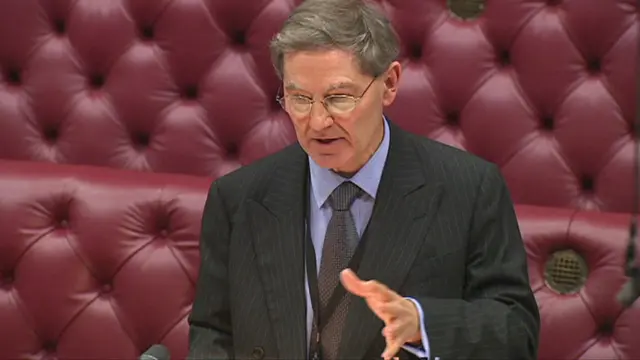
Viscount Younger of Leckie responds for the government and says he agrees with the committee's assertion that the transition from school into work is a vital point in the lives of young people.
He emphasises the importance of work experience arguing that this is linked to success later in life.
He tells peers that the House of Lords is currently advertising work experience placements.
Report from the Social Mobility Committee
 House of Lords
House of Lords
Parliament
Lib Dem Lord Wallace of Saltaire calls for a partnership between schools, FE colleges and employers to "provide answers to the skills shortage which leaves youngsters behind."
Labour spokesperson Lord Watson of Invergowrie says he regrets reductions in sure start centres' funding and criticises the government for not being willing to commit to early years funding.
 House of Commons
House of Commons
Parliament
The debate comes to an end and MPs adjourn for the last time in 2016.
MPs will return at 2.30pm on Monday 9 January 2017.
Adjournment debate
 House of Commons
House of Commons
Parliament
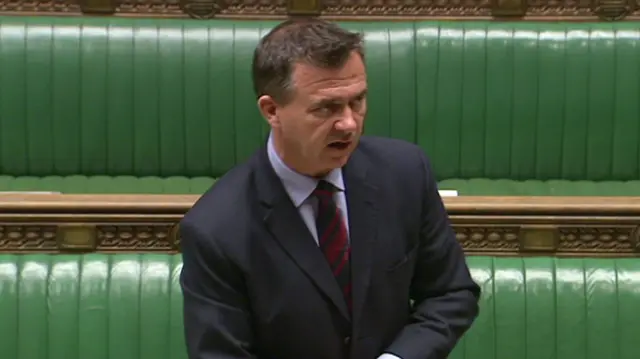
Defence Minister Mark Lancaster says he understands that it is an "emotional process" to close a number of sites across the UK but tells MPs that the sites have been chosen after a "systematic and thorough review".
He says that he is a member of the Army Reserve and is based at Woolwich barracks.
The minister tells MPs that the defence estate comprises 2% of the UK landmass - and is equivalent to the size of Luxembourg or 3 times the size of greater London.
He says the fact remains that the estate is vast and is vital to the UK's military capability - but warns that despite this it is also "inefficient".
Report from the Social Mobility Committee
 House of Lords
House of Lords
Parliament
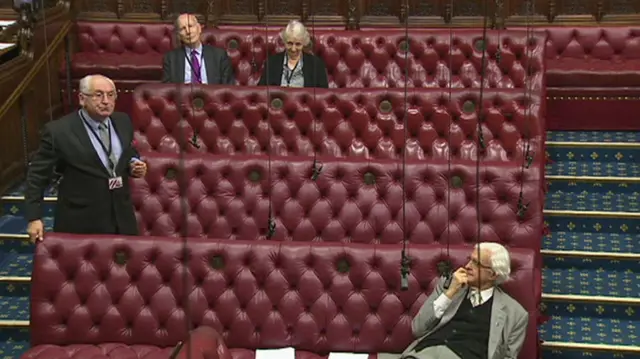
Crossbencher Lord Bird says he regrets that in the UK 87% of bank loans go towards buying property and only 13% towards investment.
He compares this to Germany where he says 20% of loans go towards property purchases.
He calls for "enormous investment" in businesses to create work for the next generation.
Adjournment debate
 House of Commons
House of Commons
Parliament
Labour's Matthew Pennycook is now leading the adjournment debate on the proposed closure of Woolwich barracks.
The UK government will sell off 56 more defence sites by 2040, Sir Michael Fallon announced in November 2016, saying that this would deliver better value for money and release enough land to build 55,000 homes.
It is estimated that about £140m will be saved over the next decade by selling off the sites.
The Royal Artillery Barracks, at Woolwich, which has been in use since 1802 is one of the sites due to close.
The Grade II listed barracks building could be closed and sold off by 2028.
Christmas adjournment debate
 House of Commons
House of Commons
Parliament
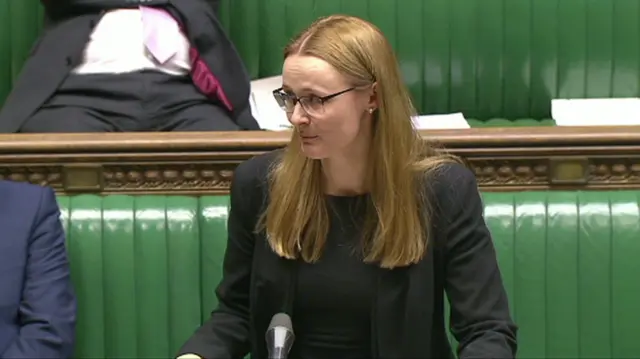
Labour's Cat Smith concludes the debate for Labour by wishing MPs and staff a happy Christmas, and the deputy leader a happy Hanukkah.
"In my house we will be celebrating both festivals...Christmaskah is indeed a thing" she says.
Deputy Leader of the House Michael Ellis is now responding to the wide array of topics which have been raised by MPs over the last few hours.
He thanks MPs for the points that have been raised and in a few cases tells members that he will raise their specific remarks with ministers.
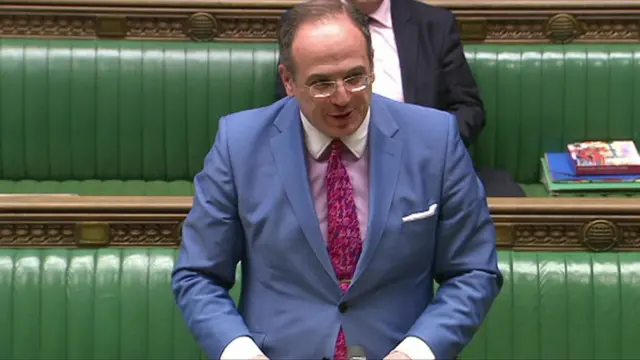
Report from the Social Mobility Committee
 House of Lords
House of Lords
Parliament
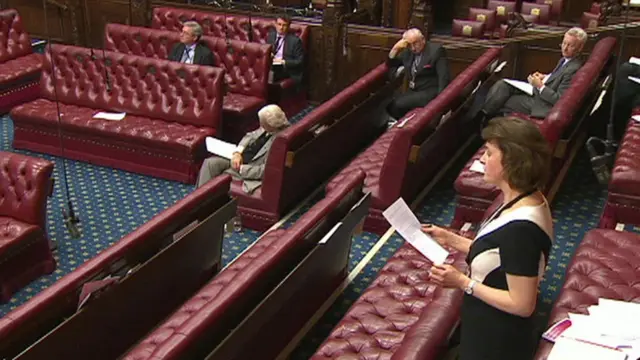
Baroness Berridge praises Deloitte for its Bright Start scheme which tries to ensure that recruitment does not inadvertently favour people from higher socio-economic backgrounds.
For example, she says, the scheme does not use competency-based interviews with questions such as "give an example of when you did something".
Instead, Baroness Berridge tells peers, the interviews focus on values.
Report from the Social Mobility Committee
 House of Lords
House of Lords
Parliament
Labour's Baroness Prosser argues that more funding is needed to improve schools and thereby social mobility.
She considers what lessons could be learnt from UK success at the Olympics - "where we were world leaders".
She acknowledges that good organisation and hard work were factors but says the medals would not have been won without "a huge increase in funding".
"Nothing comes from nothing" she says.
Christmas adjournment debate
 House of Commons
House of Commons
Parliament
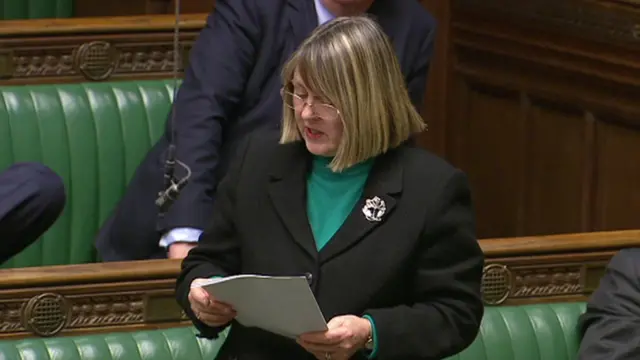
Conservative MP Fiona Bruce speaks of her "consternation" at learning about the funding plans for schools in her Congleton constituency. She says teachers in her area expected a good funding increase but instead discovered that theirs will be the "very worst" funded schools in the country.
She says that headteachers have reacted with "utter dismay" and calls the decision "shocking".
Ms Bruce says that new homes in the area also mean that schools will be expected to educate additional pupils with no additional funding.
She says that teachers have said they will have to consider reducing support staff for special educational needs children or even will have to only open four days a week.
Report from the Social Mobility Committee
 House of Lords
House of Lords
Parliament
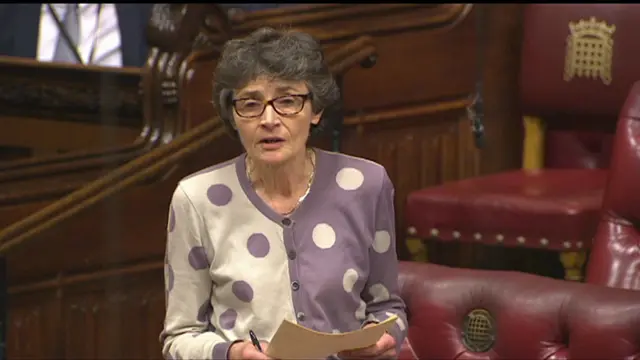
Baroness Morris of Yardley
Following Lord Baker, peers hear from another former education secretary. Baroness Morris of Yardley was education secretary under Tony Blair's Labour administration from 2001 to 2002.
She says the government response to the report is very disappointing and that at every single "join" from infant to primary school or primary to secondary school the transition for children "doesn't work". Baroness Morris says the biggest problem is at age 14 to 19.
Baroness Morris ends by saying that the report provides a framework for moving forward but only "if the government is brave enough to take the risk."